|
|
|
Most people who know me know that I am a professional organizer. When they learn that I have also been writing a book, in company with my husband, on America's war in Afghanistan, I can see them wrestling with the disconnect this statement engenders. I confess that at times I have wrestled with this seeming disconnect myself. How did I become an author on such a topic? For starters, I am married to a military historian who has published eight books (not counting this one), all of which I have edited. In recent years, I have also assisted him in his research, and I was a contributor on his last two books. It has been an evolutionary process, to say the least, but I won't go into that now. Instead, I wish to capture some of the lessons I have learned about life and organization through the process of writing about war and chaos. Some of these lessons are specific to the topic of our book, while others are more general to the writing process. Lesson #1: Work with a BuddyMy husband and I have very different methods of writing. I edit as I go, laboring over every sentence until I'm satisfied with it. I go back to the beginning repeatedly and reread the whole thing (or portions thereof) to see if I like the way it flows. As a result, my process is slow, but my product is pretty nearly complete by the time I get to the end. In contrast, my husband's method might best be described as a sort of brain dump; he refers to the process as "vomiting on the page". He expels his ideas in a sort of stream of consciousness and then goes back later to "clean it up." He writes chapters at a much faster pace than I do, but they require more editing before they are publication ready. You might think that our two disparate approaches to writing would be incongruous, but the opposite has proven to be true. In fact, we seem to balance each other out, so much so that as I performed the final edit of our work, I found myself wondering repeatedly, "Did I write that, or did he?" This had to do, at least in part, with the fact that we edited each other's work. Thus, the final product was a true melding of our styles and voices. In part, however, it had to do with the unique contributions we both provided. Because he was much more comfortable with and knowledgeable about the topic, I could ask for his input when I was stuck, and his insights would get me on track and moving forward. On the other hand, because I felt the need to research things in depth, I was sometimes able to provide information that was new to him. THE LIFE/ORGANIZATION CONNECTION: When it comes to organizing and life, working with a partner can help you to achieve things you might struggle to complete on your own. A reliable, truthful, supportive friend can be a cheerleader, a source of emotional support, a pillar of strength, and a provider of wisdom. A buddy can help you to see your stuff, your space, and even your situation in new and meaningful ways. You can gain new insights about how to arrange things, how to part with things, and how best to proceed with whatever challenge you're facing. In addition, a partner can help you to stay on task. In the end, your final product will often be better than you imagined because of the encouragement and guidance of a trusted friend. Lesson #2: Perfect is the Enemy of the GoodBecause my method of writing is laborious and methodical, I can sometimes get bogged down by the process. In my effort to produce the perfect paragraph, I can waste precious time and experience unnecessary stress. My husband, with his different approach to the process, helped me to see that my work didn't have to be perfect to be good. Knowing that we were going to go back over the product multiple times with more than one set of eyes meant that I could set things aside that I was struggling with and move on. Invariably, things that had stumped me earlier would come together with relative ease after a brief respite. THE LIFE/ORGANIZATION CONNECTION: Sometimes we talk ourselves out of doing something because we know we won't be able to do it perfectly. On the flip side, we can sometimes get bogged down in a process of seeking perfection that actually prevents us from making progress. Few things in life are perfect (aside from newborn babies). Most of the time good is.... good enough. It's better to move forward and improve in small but meaningful ways than to become mentally, emotionally, and physically mired in misgivings and self-doubt. Lesson #3: Trust YourselfWhen we first started on our book, I often found myself wondering what on earth I was thinking when I agreed to take on the project. What did I know about Afghanistan or the war? While my husband assured me that I knew a whole lot more than the average person, I still wondered if it was enough. The more I read, and researched, and wrote, the more my confidence in the topic and myself as a researcher, interviewer, and writer grew. I began to trust that I could do what I had set out to do. I came to see that I am a person who can do hard things, and that hard things are really the best kinds of things to do because in doing them we become better versions of ourselves. THE LIFE/ORGANIZATION CONNECTION: If you are someone who feels overwhelmed by the organization process, you're not alone. It can be extremely challenging. Just wrapping your head around what needs to be done and knowing where to start is mind boggling for many. That said, it's the good kind of hard. Getting organized can change your life. It can make you a better version of yourself by improving the way you do things, how you look at the world, and how you interact with your environment. I truly believe that organization has the power to transform people's lives by reducing stress, increasing productivity, improving peace of mind and nurturing a sense of empowerment. If life is hard, one thing that can make it a little (or a lot) easier is getting organized. Lesson #4: Don't Give in to DiscouragementI admit that over the two plus years that we worked on the Afghanistan book my enthusiasm for the process and the product waxed and waned. At times I wanted to give up and walk away. My husband is a busy guy; he's almost always juggling multiple projects. There were times when I thought he would never have the time needed to help me get the book finished, and I didn't see how I could possibly do it alone. We figured it out. He made the time. We worked together and made it happen, and if I'm being honest, I have to admit that I am pretty proud of what we accomplished. THE LIFE/ORGANIZATION CONNECTION: Think of the word discouragement. The prefix 'dis' gives the root word the opposite meaning - so, for instance, trust becomes distrust, or not trusted. The suffix 'ment' comes from the Latin word mente which means mind or thought. So, discouragement is an absence of courage of thought. Synonyms for courage include determination, endurance, and fortitude. It's more than just bravery; it's sticking with things that are hard and seeing them through. As we've already established, getting organized can be difficult, challenging, and even overwhelming. It requires courage in the form of stick-to-itiveness, a willingness and conviction to persevere through the rough patches. Just as with our book, sticking with the organization process is well worth the effort, and you will feel wonderfully accomplished and proud when your goal is met. Lesson #5: Growth is Part of the ProcessIn the beginning, every chapter was painstaking. I lacked confidence, and I didn't trust myself. As a result, I worried and worked extra hard to understand the subject matter until I could explain it in layman's terms. In time, something inspiring occurred. The more I researched and interviewed and wrote, the more comfortable I became with my ability to do those things. My belief in myself improved. I became not only comfortable with, but proficient in my subject matter. It got easier. It wasn't until I found myself easily conversing with my husband about the challenges associated with using B52's for close air support or quickly creating a call-out box on the difference between the Taliban and al-Qaeda without having to look it up that I realized I had grown into and embraced my new role. It was a good feeling. THE LIFE/ORGANIZATION CONNECTION: I have seen a similar transformation in some of my clients. At first the organization process is daunting, and they are trepidatious about undertaking it. The more they work at organizing, the more comfortable they become with it. With enough effort and consistency, some actually change the way they think and act such that they truly become organized people. The more you do a thing - anything, really - the easier it becomes. Lesson #6: Look for Sources of InspirationMy confidence and comfort level took a turn in the right direction when I met a wonderful woman, an American soldier, who not only provided me with an interview that became the basis for one of our chapters, but also introduced me to two other women, both Afghans, who helped me understand Afghanistan and the war in new and eye-opening ways. All three of them continue to be a source of inspiration to me. They see needs, and they strive to fill them. They are making a real difference in the lives of people in truly desperate circumstances. Their stories gave meaning and purpose to my writing. THE LIFE/ORGANIZATION CONNECTION: Inspiration motivates and excites us to do and be better. It can come in many forms - a Pinterest image, a song, a blog post, a story, a person, etc. Look for ideas, resources, and people who make you want to improve and believe that you can. Anything that weighs you down or makes you feel inferior should be avoided. Look for the uplifting and let it embolden and excite you to do the things you've been afraid to do for one reason or another. Lesson #7: Look for the Silver LiningLike so many aspects of life and areas of the economy, the publication industry has been impacted by COVID-19. Our publishers, at least, are way behind on their review process. As a result, our deadline got moved back. In some ways this was a bummer because we were both eager to get done with the book and move on to other things. In the end, though, having extra time proved to be a good thing. It allowed us to tell a more complete tale of the war and its impact. By the time we sent our manuscript off, the United States had withdrawn from Afghanistan, and we were able to capture that process and its impact in our book. Had we met our original deadline, that would not have been the case. THE LIFE/ORGANIZATION CONNECTION: Life is full of challenges and setbacks. Often my organization clients are struggling to regain order in their lives after experiencing some sort of major life change or other challenging circumstance. Otherwise orderly people can become disorganized in the midst of life's chaos. Know that unexpected changes, no matter how unwelcome they may be, bring new opportunities in the wake of the trials. There is always something to be learned and gained from every experience. Often times of change are opportunities to rethink one's situation and make a fresh start. Lesson #8: Step Outside Your Comfort ZoneTo say that the topic of the Afghanistan war was outside my comfort zone is an understatement, but it has become a topic that I am not only comfortable with but somewhat passionate about. We often talk about "thinking outside the box". My husband, who also teaches about the concepts of narrative and cross-cultural relations, promotes the idea of expanding one's box to include new ideas and ways of thinking about and doing things. Our book taught me that doing so is not as difficult as you might think. It requires effort, to be certain, but as noted already, it gets easier over time as you expand your mind and develop your skills. THE LIFE/ORGANIZATION CONNECTION: Often a lack of organization can be attributed to habits and behaviors. Changing our behaviors and developing new habits (or systems) can make a huge difference in the level of organization we enjoy, but it all begins with a willingness and desire to step outside our comfort zones and try a new way of thinking about and doing things. Lesson #9: Everyone Thinks They Are on the Right SideAs Americans, we think of the Taliban and al-Qaeda as the 'bad guys', and we think of ourselves and our allies as the 'good guys'. The Taliban and al-Qaeda see things the other way around. They believe their cause is just. They see America and the West as decadent and depraved to the point that they have a duty to rid their world of our influence. Everyone thinks they are on the right side doing the right thing for the right reasons. I truly believe that there are very few people in this world intentionally pursuing evil for the sake of evil. People generally do what they do because they believe it's the right thing to do, and they want to be right. THE LIFE/ORGANIZATION CONNECTION: Living with other people, no matter how much we love them, is challenging. Often, those we love have a different approach (or lack thereof) to organization and clutter. Their clutter tolerance may be higher or lower than our own. Such circumstances can create tension and conflict within the home. Achieving compromise can be difficult, but it starts with recognizing that other people aren't doing what they do simply to rile and annoy us. They're doing what comes naturally to them. The first step to achieving consensus is learning to understand one another's perspective. Lesson #10: Things Are Often Not as They SeemIn our research we looked at a ton of primary source documents. One thing that quickly became apparent was that every source has a bias. Everyone, be they politicians or reporters or military commanders or common, everyday people, is trying to tell their story, and every story is impacted by the perspective from which it is told. Most people, whether consciously or unconsciously, don't tell the whole story; they tell the story they want you to hear. Their intent may be entirely innocuous. Nevertheless, what they are really sharing is a message, and the story is the means of conveying that message. THE LIFE/ORGANIZAION CONNECTION: We all have messes and fall short and make mistakes and struggle. No one's life is perfect. No one's kids are perfect. No one's house is perfectly organized - not even a professional organizer's home! When we view other people's lives through the lens of social media, it's easy to feel inadequate in comparison to the happy smiles, extravagant vacations, joyous occasions, clever projects, and glorious accomplishments that most people share on these platforms, Don't let other people's carefully curated experiences fool you into thinking that you are less capable or successful than them. We're all just doing the best that we can, including you. Give yourself some grace. Final ThoughtsThe Afghanistan book often felt like a burden to me while it was a work in progress, but once it was complete, I felt great fondness for the project. I'm grateful to have had the opportunity and experience. I'm proud of our hard work and the product we produced. I'm excited to see our book in print. What's more, I like how it has changed me for the better. It has helped me to grow and to develop my skills and abilities.
Isn't that the way it is with challenges? They seem really difficult when you are experiencing them, but once you've overcome them, they don't seem like such a big deal. In fact, they often feel like a blessing. I think that's because they are. Life is about growing, and changing, and improving, and the surest way to do those things is to push yourself to do things that feel a little (or a lot) beyond your current abilities - whether that means writing a book or tackling the mountain of mementos in the attic. In the end, I think you'll find that you are glad you made the effort.
28 Comments
On more than one occasion, I have made the mistake of accepting jobs with clients who have been referred to me by family members. In one case, a woman hired me to work with her adult daughter, a single mother of four. On another occasion, a son and daughter-in-law (who lived out of state) asked me to work with his parents who were in their nineties. In both situations, there was a clear need for the assistance of a professional organizer, and I completed several sessions with good result, but the results were short-lived. I would return each week to find that little effort had been made in my absence to maintain what had been accomplished on my previous visit. Both cases ended with me contacting the referring family member to tell them I no longer felt comfortable taking their money. Why? Because both the adult daughter and the aging parents lacked the most essential requirement for successful, long-term decluttering: desire. While it was clear to me, and to their loved ones, that they could assuredly benefit from a decrease in clutter combined with an increase in organization, neither felt particularly compelled to embrace the process. In all honesty, I suspect that both felt a tad resentful at having their space invaded by a stranger in order to quell the unwelcome judgments of well-meaning (but meddlesmone) family members. I could have helped the elderly couple and the single mom. I could have made their lives easier and their spaces more comfortable. I could have saved them time, and money, and frustration. None of that mattered, though, because they didn't really want my help. They liked their spaces the way they were. They liked their stuff and didn't feel a need to part with anything. Because they had no desire to declutter, any efforts by outsiders to help them do so were destined for eventual, if not immediate, failure.
One person's clutter is another person's comfort. This being the case, it is impossible, not to mention inconsiderate, to inflict decluttering on another adult person. It won't work. The minute they are left to manage their space as they like, the clutter will return. They will, in all likelihood, seek it out in order to restore a sense of normalcy and ownership to their space. This reluctance (or downright refusal) on the part of family members to clear away the clutter can be frustrating to say the least, but think of it from their perspective. Would you want someone telling you what you should do with your things? Do you not consider yourself the authority on your stuff? What appears to be clutter to some seems entirely appropriate, and even desireable, to others. This point is reinforced to me a couple of times a year when we visit my father-in-law whose relationship with stuff is completely foreign to me.
My father-in-law loves stuff. Personally, I take Marie Kondo at her word. If an item - in and of itself - does not bring me joy, I find it a new home. For my father-in-law, simply obtaining things brings him joy, and having them fills him with comfort. The nature or quality of a particular thing has no real bearing on its ability to bring him satisfaction. It isn't the thing itself but the possesion of it that seems to bring him pleasure. He just loves aquiring and having things. Let me share an example (or two) to illustrate my point. On our most recent visit he couldn't wait to show me his latest acqisition. "Check out this desk I found on the side of the road. It was free." (It looked free.) It was obvious from the enthusiastic anticipation on his face that he was waiting for me to congratulate him on the procurement of this amazing find, but I couldn't. I just couldn't. Instead I said, "Do you need another desk?" knowing full well that he does not. He has seven desks. I counted them. "No," he smiled, unperturbed by the failed attempt at affirmation. "But it was free." This exchange is only too common between us. Ask me about the second sewing machine. - he does not know how to sew - or the bicycle he paid to have resurrected after stumbling across it at the dump (yes, the dump). He is 77 years old, and one has to traverse no less than a minimum of four miles of gravel roads in any given direction in order to get to his house. Members of our family (my husband and I included) have had flat tires on three occasions driving on those gravel roads. What on earth does he want with a junkyard bicycle? Dad likes to think that he will ride the bicycle or learn to use the sewing machine (both of which he has had without using for over a year now), but in all honesty, he isn't the least bit concerned about whether or not they actually earn their keep. He just likes having them.
As a person who loves order, I used to cringe a little encountering all the loose screws and empty plastic containers and other odds and ends my husband's father insists on keeping. I used to grumble to myself every time I opened the ridiculously heavy drawer in his kitchen where he keeps his 17 frying pans (two or three of which he actually uses). It used to bother me terribly thinking about the fact that some day my husband and his brother are going to have to deal with all that stuff.
How am I able to make those statements in the past tense? Because I've come to a realization. His stuff is his stuff. It's his life, and his house. He isn't a hoarder. His place, while not as orderly and neat as my own, is perfectly presentable. Most importantly, though, it brings him joy. It makes him happy to have his things about him, no matter how unnecessary and lacking in value some of those things may seem to others. While the professional in me wishes that all the world would embrace the wisdom of living a clutter-free life, the daughter in me has come to realize that it's just stuff, and for now it has a happy home with someone who values it. Possessions are highly personal in nature. There is no sense in trying to define the worth of someone else's belongings for them. For this reason, those of us who are inclined toward order must sometimes learn to be patient and accepting of those who happily inhabit the other end of the clutter spectrum. People often talk about leading a more "balanced life". It is my belief that this phrase arose from the notion that you can "do (or have) it all". It's a way of expressing a desire to achieve a sense of stability and calmness amid the chaos of a busy life. The problem is a balanced life is not possible, nor is it truly desireable. There are a number of reasons why this is the case.
Balance, by its very nature, is fleeting. Try standing on one foot. Yes, you can do it. But for how long? With practice, you may be able to improve your performance, but you will need to rest and readjust regularly in order to prevent yourself from toppling over. In addition, priorities, needs, and circumstances are constantly shifting making it necessary to adapt and change. The idea that there is some magic formula we can apply to achieve the permanent end goal of a balanced life is a fantasy. The moment you feel as though equilibrium is within reach, something will change. A new need will arise, upsetting your stability and forcing you to adapt. Balance also implies equality of importance. In order for something to be balanced, the different elements have to be equally weighted. When it comes to life, responsibilities, and time management, equality is not the goal. Some things simply require more of our time, energy, focus, and commitment than others, and that's a good thing. Imagine what life would be like if every aspect of our lives (work, family, social interactions, home maintenance, civic duties, personal development, and more) required and received an equal degree of importance and attention. It would be overwhelming and exhausting, to say the least, and oddly enough, it would leave us feeling unbalanced. When we speak of balance, what we really mean is that we want to have enough time, energy, and resources to focus on the things that really matter and not neglect the things we value most.
We all know that there are an infinite number of hours in the day. What we sometimes forget is that we can only do so much in the hours that we have. Author and motivational speaker Jon Acuff stated it well when he said:
In other words, it is necessary to prioritize. If a particular thing is important, then other things must, by necessity, receive less attention. For this reason, I think of life, not as a balancing act, but as a juggling act. Juggling implies a more fluid, changing environment. Think of all the aspects of your life as balls. You can only hold one or two balls at a time, thus requiring you to juggle. If you try to juggle too many things at once, you will drop some of your balls. At any given moment, some balls are more important than others. They are made of glass; other balls are made of rubber. You cannot drop a glass ball, or it will break. Rubber balls, on the other hand, are safe to drop because they will bounce and remain intact until you are able to retrieve them. The secret is to determine which balls are glass and which are rubber, knowing that the nature of the ball will change depending on your circumstances and season of life and personal priorities. Some balls even change in nature during the course of a single day. For example, when you are at work, work requires your focus. It is a glass ball. But when you are at home, other things become more important. The key to success is to learn to discern which balls you can afford to drop or set down and which ones you have to keep in the air at any given time. When we choose in advance what to focus on and what to ignore, we free ourselves from guilt and shame. Instead of feeling bad about some ball you’ve dropped, you can feel empowered by your own mindfulness in deciding not to pick that ball up to for the time being.
Once you buy into the idea that life is not a balancing act, there is much to learn from the juggling analogy. Consider the following:
If you're tired of trying to achieve the impossible ideal of a balanced life, I encourage you to take a step back and reevaluate your situation. Instead of trying to do it all, make an accessment of what matters most. Give yourself permission to set down some of your balls from time to time. Decide when you can best give time and energy to the things that truly matter in your life. Be mindful in the moment by switching balls out periodically to reflect your priorities. Enjoy focusing your energy, effort, and heart on a few essentials and let the extraneaous balls bounce off into the corner until (and if) you are ready to retrieve them.
AFFILIATE DISCLOSURE: This post contains affiliate links. This just means that there are product suggestions included within the text. Should you click on one of the links and decide to make a purchase, I will receive a small commission. I only suggest products I love and have experience with that are directly related to the content in this post. You can view my Disclosure Statement for more information. Thank you for your support! When you hear the word clutter, what comes to mind? If you're like most people, physical clutter is the thing you think of first. It may even be the only thing. In truth, though, clutter can take many forms. Kerri L. Richardson, professional organizer and author of the book What Your Clutter Is Trying To Tell You, defines clutter as follows: When thought of in this way, many other types of clutter become evident. The first step to decluttering is to uncover your clutter. In other words, to truly conquer your clutter, you have to identify it in all its forms in order to root it out and remove it from your life.
Not all clutter is visible. While visible clutter (which I will refer to as physical clutter) is the most obvious, it may not be the most limiting or the most impactful form of clutter in a person's life. Clutter can be mental, emotional, or spiritual as well. While generally unseen, these types of clutter (sometimes referred to as "baggage") can have a radical impact on quality of life and overall well-being.
The clutter that is conscious is the clutter that you recognize and acknowledge. When you encounter conscious clutter, it elicits a reaction. The reaction can be both intellectual and physical in nature. For example, seeing a cluttered countertop might cause your muscles to tense or your heartrate to increase. It might also conjur negative thoughts and emotions. While most conscious clutter is physical, not all physical clutter is conscious. It's possible for a person to become so used to physical clutter that he or she develops a sort of clutter blindness. Unconcious clutter can also evoke physical and emotional signs of stress. The difference lies in the fact that unconcious clutter is not recognized as clutter. It can be anything in your life that is getting in your way, preventing your progress, or impacting your peace and happiness. This description of clutter by inspirational writer Eleanor Brownn perfectly describes what I am referring to as unconscious clutter.
Now that we have expanded our understanding of clutter, let's take a closer look at the different kinds of clutter.
Physical clutter is stuff. It takes up space in the physical world. When searching for a definition of clutter, you will find that it is often associated with disorder, confusion, and excess. Physical clutter refers to those items that are unused, unneeded, and/or unwanted but held onto for one reason or another. It can also refer to items that are out of place or have no permanent home. It's interesting to note that the reasons behind the accumulation and retention of physical clutter could be considered a form of clutter in and of themselves. I'm thinking here of the guilt or fear that often cause us to hold onto things that really don't have a place in our lives. Clearing Away Physical Clutter: This website is dedicated largely to the concept of dealing with physical clutter, so I won't go into tremendous depth here. Instead, I will just offer a few simple suggestions for getting started.
Mental clutter accumulates when we have too much to do or to think about. As a result, our brains become overloaded making it difficult to focus, problem solve, and be productive. This leads to stress, anxiety, and frustration. If you are like me, you probably find yourself thinking most clearly during down times such as while driving, taking a shower, exercising, or laying in bed first thing in the morning. This is because these simple, semi-automatic activities require very little 'brain power', thus allowing our minds to focus in on a particular problem that's been troubling us or to suddenly wow us with a flash of brilliance or creative genius. The problem is, capturing these light bulb moments can be tricky when one is in the middle of traffic or dripping wet. The good news is, there are things we can do to recreate the circumstances that foster mental clarity. Clearing Away Mental Clutter:
Emotional clutter comes as a result of negative thoughts and feelings that weigh us down and limit our progress. Guilt, fear, anger, resentment, self-doubt, jealousy, anxiety, and grief are some of the biggest culprits. Despite their damning effect on us (or perhaps because of it), we often cling to these emotions, and the sources from which they spring, with self-destructive determination. What are the sources of emotional clutter? Some examples include:
The key to overcoming emotional clutter is to develop emotional resilience, or the ability to adjust or recover when faced with change, setbacks, disappointments, and other challenges that life presents. Clearing Away Emotional Clutter:
Integrity is often associated with honesty. That is certainly an important aspect of integrity, but there is more to this concept than mere veracity. Integrity also means whole, sound, undiminished, unimpaired. When applied to one's character, I think a good way to define integrity is living in such a way that your actions are consistent with your beliefs. In other words, integrity is being true to yourself. When we make choices that we know are not an accurate reflection of how we believe we should live our lives, our integrity is weakened. Much like a building that is structurally unsound, poor choices can leave us feeling unbalanced, out of alignment, and just off. It could be as serious as committing a crime or breaking a vow or as simple as being unkind or eating something that's bad for you. It all depends on what matters to you and the person you want to be. Whatever the case, the more we live out of sync with the things we believe to be right, the more spiritual clutter amasses in our lives. Clearing Away Spiritual Clutter:
Clutter can be overwhelming. When it comes to physical clutter, clients often tell me, "I don't know where to start." The same can be true for all forms of clutter, be it mental, emotional, or spiritual. My response to this statement is always the same, and it holds true no matter what type of clutter you are dealing with. It doesn't matter where you start. Just start, and in doing so, you will build confidence and momentum that will carry you through to the end. I wish you every success in uncovering and conquering your clutter. It is worth the effort. You can do it. I believe in you. If you're feeling nervous about uncovering your clutter, contact me. The process is always easier when you have support.
Recently, as I have begun to work virtually with clients, I have encouraged them to keep a downsizing journal.
A downsizing journal is exactly what it sounds like: a journal dedicated to the process of downsizing. Downsizing is a major undertaking that involves a great deal of physical, mental, and emotional effort. At times, it can be overwhelming, frustrating, and/or exhausting. Staying on track and maintaining your motivation for such an undertaking can be challenging. Writing about the experience can help you appreciate your purpose, examine your feelings, vent your frustrations, and record your progress.
You can obviously include anything you like in your downsizing journal. That's the beauty of journals; they're personal. That said, I do have a few recommendations for how to utilize a downsizing journal effectively. Consider including the following: Define Your "Why" Your "why" is your purpose for downsizing. I enthusiastically encourage you to start your journal off by creating your persoanl list of reasons for embarking on the downsizing journey. Take your time producing this list. Ponder. Ask yourself questions such as:
Record your answers. You can create a simple bullet list or write detailed paragraphs explaining each of your reasons. However you choose to record the information, it's important that you look at it frequently throughout the process. Use it as a reminder of why you started the downsizing process and a source of motivation to keep you focused and moving forward. Describe Your End State Your end state is closely related to your "why" but different enough to merit a page or two of its own. Your end state is what allows you both to visualize and to recognize success. How will you know when you have successfully downsized if you don't have a picture in your mind of what that will look like? Again, it's helpful to ask yourself a few questions and record your answers. Some questions to ponder include:
Again, it's important to revisit your answers periodically in order to evaluate your progress and be reminded of what you are working toward. Outline an Action Plan If you are working with a professional organizer, he/she can assist you in creating an overarching plan for achieving your downsizing goals. Downsizing is a comprehensive process that typically involves editing all of your possessions, at least to a certain degree. As such, it is best to break it down. I recommend taking one of the following approaches:
Creating a detailed plan for downsizing will take some time and thought, but it will make the actual process much simpler because you will know when you have met your goal. Decision making will be less stressful if you have a clear set of guidelines in place to help you determine what you want/need to keep. Record Your Progress A journal is a great place to insert before and after photographs to document your progress. You might also use your journal to make to do lists. Personally I find crossing items off a list extremely satisfying. You can also just write about your progress in typical journal format by describing what you accomplish each day or week. Vent Your Frustrations As with any major undertaking you will encounter challenges throughout the downsizing process. Things will not always go according to plan. Venting your frustrations on paper can be wonderfully theraputic. It's a way of purging your soul while purging your belongings! Work Through the Decision Making Process If you're having trouble determining what to part with or struggling to let go of things, write about it. Make a list of pros and cons for keeping or getting rid of a particular item that's causing your stress. Seeing it all laid out in black and white often yields an obvious solution. Record Your Feelings When you're feeling overwhelmed by the sheer scope and scale of the process, write it out. When you're feeling proud of what you've accomplished, record those emotions. Writing down your feelings can be an effective way of processing them. The simple act of writing it down can help you to make sense of what you're feeling and deal productively with those emotions. Write About Your Stuff Do you have fond memories of a particular item? Whether or not you are keeping the item in question, I recommend writing about it. Describe the circumstances that led you to acquire the item, who gave it to you, what you love about it, why it has value to you, and where it came from. You might even experiment with writing to the item itself. Pretend you are transcribing a letter to the beloved item. Reminisce about how you "met", who "introduced you", what kinds of experiences you enjoyed together, and so forth. Be sure to include a photograph of the item as well. Keep Track of Things We downsized as part of a recent move. For us the process involved giving away many items to friends and family, donating items to charity, and selling some items. Because I was giving away a lot of things to a lot of different people, I kept an ever-evolving list of the items I had offered up, who had claimed them, and when/where the items would be handed off to their new owners. A downsizing journal is the perfect place to keep track of such information. If you're selling a lot of things, you can also use your journal to list each item, your asking price, your rock-bottom price, and other pertinent information.
If you are embarking on the downsizing journey, I hope you will consider keeping a downsizing journal. Doing so can help you manage, process, record, and preserve the process. Your downsizing journal can be private, or you can share it with a family member or trusted friend. If you are working with an organizer, I recommend you share portions of your journal with him/her as you deem appropriate.
I just returned from a walk in the brisk fall air. I love fall. It is by far my favorite time of the year. I spend much of the summer anxiously awaiting its arrival, and I mourn its passing as mild, sunny days give way to winter's chill. The reasons for my fondness of fall are many, but this morning as I observed random leaves floating to the ground, one in particular stood out in my mind: change. I like the change in the weather, the change in activities, the change in focus, and the changes in nature. All this got me thinking about the concept of change, especially when considered in conjunction with some other aspects of my walk which I will share in this post as well. We are currently undergoing a major life change. We are moving houses. I'm both excited and overwhelmed by the prospect. That is the thing with change; it can be both uncomfortable and exciting at the same time. For instance, there are many things about my current home that I love and will miss. That said, there are even more things about my new home that I am eager to enjoy. Instead of focusing on what I am giving up, I am trying to appreciate those things that I love about the old house and the enjoyment those things have brought to my life. I will look back on them with a nostalgic fondness and appreciation. I will not pine away for the loss of them. Instead, I will focus on the new experiences and opportunities that my new home affords. Change can take many forms, but certain types of change are commonly experienced. My walk brought to mind a number of metaphors for change which I would like to share. In recent months much of the world has experienced a narrowing of the path ahead. COVID-19 has restricted people's ability to work, socialize, and function freely. Many people have keenly felt the limitations imposed by these external constraints. Others have instituted their own personal constraints in an attempt to protect themselves and their loved ones. At the same time, many people have utilized this time of reduced external opportunities to reflect and build inwardly. There have been so many marvelous examples of people using this time of restriction to expand their lives in meaningful ways by focusing on family, rethinking priorities, tackling projects, and purging the unwanted from their lives. When the path before us narrows, we can choose to see it as a limitation or an opportunity. In reality, it is both, We can utilize the duality of the circumstance to look back with gratitude and insight regarding the distance we have traveled while simultaneously focusing our efforts moving forward. Sometimes, the road ahead gets steep. Troubles seem to come in bundles. Life gets a little (or a lot!) hard for awhile. At such times, we can find ourselves asking, "What next?!" as new problems present themselves. It can feel as though we are endlessly climbing. Just as climbing a steep hill in real life makes us physically stronger, climbing metaphorical hills can make us emotionally and intellectually stronger. The beautiful thing about hills is that they always end in an enhanced perspective. When we get to the top, we can see farther, understand our position better in relation to everything around us, and know better how to plot the course ahead. It can be tempting when trudging uphill to focus downward on the next step. While this method will keep us moving forward, it does little to make the journey more bearable. Instead, why not pause periodically to catch your breath and look back at the distance you've traveled? Doing so can instill feelings of gratitude, accomplishment, and hope. When you resume, try to look up and enjoy the ever-decreasing distance between yourself and the summit. Thinking in terms of time management, responsibilities, and other burdens, we sometimes need to lighten our load for the upward trek by laying aside, if only for a time, those things that are extraneous and superficial in order to focus on what matters most. What matters most at any given time will change with our circumstances and needs. Don't be afraid to tell others, "My path is steep right now. I need to lighten my load." Depending on who you tell, they may actively look for ways to help lessen your burden. They say that what goes up must come down. When we get to the top of life's metaphorical hills, we are typically faced with a steep decline. After the difficult upward trek, it can be tempting to let gravity and our renewed energy pull us downward at an ever-increasing pace. Better to walk carefully and intentionally, enjoying the newly gained perspective. Following a challenging time, give yourself grace and patience as you slowly add meaningful things back into your life. Resist the urge to invite too much into your life too soon, be it activities, commitments, or stuff. Occasionally, something really big comes along. It might be an illness or injury. It might be the loss of a job or a loved one. Whatever the case may be, such life changing events tend to demand an inordinate amount of our time, attention, and energy. They force us to yield to their demands and set other aspects of our lives on the top shelf to gather dust for a time. Such events or circumstances are largely unavoidable, and in many cases, unpredictable. Many of my clients are just emerging from (or still caught up in the midst) of a life-changing situation. Their routines have been derailed, and their personal surroundings have suffered as a result. With all their energy and effort focused on managing the 'big thing' in their life, things like order and organization have yielded. That's normal, but it doesn't have to be permanent. When circumstances force your to yield to their demands, know that yielding, by it's very nature, is temporary. Whatever the passing obstacle, it will pass, and it will once again be safe for you to continue on your way. Don't berate yourself for "letting things get out of hand". They are just things, and over time you can regain a comfortable level of control. While it would be nice to always be assured of a straight and shady path (like the one above), that isn't how life works. That's actually a good thing. An unbending path is a boring path void of opportunities to test ourselves and increase our strength. I purposefully saved this image for the end. This part of the path is located toward the end of my walk. As you can see the path ahead curves. The sign, in fact, indicates multiple curves ahead. There are curves ahead for all of us, and we often can't see what lies around the bend (as is the case here). That's why it's good, when we get the chance, to sit down on a comfortable bench and rest. While we're at it, we might also take a moment or two to toss out any "trash" that is burdening us before stepping back onto the path to see what's around the corner. Change is inevitable. Change is often difficult and almost always uncomfortable. Change is also necessary and beneficial. When viewed with the proper perspective, change can be an instrument for gratitude as we look back on past experiences and the ways in which they have shaped and blessed us. Change can also be a precursor and instigator of growth in our lives as we adapt to our shifting circumstances and improve ourselves in the process. It isn't only our circumstances that change. We change over time as well. Our interests, tastes, needs, wants, and preferences change. Often, instead of letting go of things that held meaning or interest to our former self, we cling to them. Our progress on the path ahead, be it hilly, curvy, or wrought with obstacles, will be easier if our burden is lighter. Letting go of the things that no longer represent who you are and what matters to you, leaves you free to welcome the changes ahead. How has change impacted you? What insights have you gained as you have overcome challenging times?
We're moving, or at least we think we are. We are certainly considering it seriously. At any rate, we're in a moving mindset. A couple of weeks ago, my husband said to me, "When we move, we're not taking that with us." It happened to be a piece of furniture, and I happened to agree whole-heartedly with him. In fact, my response was, "I was thinking the same thing." And I was. In fact, I have been thinking that about a lot of things, and this has got me pondering: If I wouldn't take it with me when I move, why am I holding onto it? Sometimes the answer to this question is a perfectly reasonable one. Perhaps the item is useful in the current location, but it won't be needed in the new one. Such would be the case if, for instance, you lived in an area where is snows regularly and you were moving to a southern state. You might opt not to bring the snow blower to your new location. Often, however, our reasons for holding onto things we wouldn't take with us if we were moving are not so easy to define and may require a little soul searching. I have decided to begin a pre-move purge. Even if we decide not to move, I know I will be glad that I embarked on this endeavor. No matter what one's current life circumstance, a little purging is always good for the soul, not to mention one's space. Below is my ever-growing list of items I will not be taking with me if and when I move. I've got specific examples, but I've decided to generalize in order to provide information that will be more widely applicable.
STUFF WE'VE OUTGROWN: Clothing is, of course, the first thing that comes to mind, but it is by no means the only category of items that fit this criteria. It is possible to outgrow items not only physically, but also intellectually, emotionally, or simply in terms of preference. As an example, a client of mine recently told me that the music in her CD collection "no longer falls on my ears like it used to." In other words, her tastes have changed. She has outgrown her old music. What have you outgrown? You don't have to wait for a move to get rid of things you no longer love. PILLOWS: The National Sleep Foundation recommends replacing pillows every one to two years. This is because pillows absorb dust, dead skin cells, body oils, and other icky stuff that attracts dust mites and other microorganisms. While it is possible to extend the life of some pillows by washing them every three to six months, they will not last indefinitely. The following are indications that your pillow needs replacing:
MATTRESSES: Like pillows, mattresses serve as collection sites for all sorts of yucky stuff. There are some things you can do to care for your mattress and extend it's life, but generally speaking mattresses should be replaced every eight to ten years. Moving is a great time to assess the condition of the mattresses in your home and leave behind those that have lived a full life. DAMAGED STUFF: I have a tendency to use things until they are unusable. My cell phone is a great example. My children regularly chide me about the fact that it is so outdated (I still have an iPhone 7 and my iPad is 8 years old). But it still works, albeit not as well as I would like. Another example is my blender. The lid to the pitcher does not seat properly unless you physically hold it down. It makes using the blender a bit frustrating. To replace the pitcher and lid costs almost as much as a new blender, so I am not taking the old one with me when I move. It isn't worth salvaging. Most of us have stuff that is broken, stained, frayed, threadbare, or otherwise damaged. We hold onto such things because we once loved them, and we would like for them to be whole again or because we do not want to spend the money to replace them. Whatever our reasoning, holding onto such items only adds clutter to our lives. OUTDATED ELECTRONICS: We have a bin in our attic full of old electrical chargers and cords. I cannot identify the purpose of 99% of these accessories. I strongly suspect that the vast majority of these cables and cords do not work with any device currently residing in my home. We've lived here for seven years and never needed them, so they will not be coming with us when we move. Do you have any outdated electronics in your home? My page Where to Donate or Recycle Electronics offers a variety of resources for disposing of electronics safely and responsibly. UNUSED APPLIANCES: I knew it was time to get rid of the quesadilla maker when I went to make quesadillas and intentionally opted to use another method for preparing them. The same was true for my fondue pot. Unused appliances take up a lot of space, so parting with them is a great way to clear the clutter from your kitchen. UNUSED SURPLUS: I'm a firm believer in being prepared and keeping things on hand that you use regularly. It's wonderful to be able to pull a staple item off the shelf when you run low rather than having to run to the store. That said, most of us hold onto an excess of things we don't use or only use periodically. In the case of food items, this can be doubly wasteful. The space needed to store the items is wasted, and often the items themselves go to waste because they expire and have to be discarded. I happen to have a weakness for school supplies. Despite the fact that I have resisted the urge to 'stock up' on such items during the late summer sales for the past two years since my youngest child graduated high school, I still have drawers and bins teaming with empty notebooks, unopened bags of pens, and other school essentials. It's time to make a realistic assessment of what we will actually use in a timely manner and edit my cache. DUPLICATES: We recently bought a brand new squeegee to push the rain off our deck. A few weeks later we discovered that we already owned a squeegee - the exact same squeegee, in fact. One of them is going to find a new home before we move. A couple of years ago, we received a waffle iron as a gift. We already had a waffle iron. Since getting the new one, I have not used the old one. I'm keeping the new one and bidding the old one farewell. As the wife of an army officer, I also have an impressive collection of serving trays which have seen a lot of use over the years. In addition to my own collection, I inherited several from my step mom. These days they don't get nearly as much use as they once did. Time to pare down the collection and pass some on to another user. Chances are you can think of similar examples among your possessions. If you have two, and one will do, I encourage you to choose your favorite and give the extra one away. STUFF THAT"S MOSTLY USED: The list of examples that fit into this category is potentially unending. I'll just give you a few to get your mind going: lipstick and other cosmetics, nail polish, partially burned candles, gift wrap scraps, craft supplies, medicines you no longer take, paint or glue that's drying up, lotions and other toiletries you tried but didn't love. You get the idea. Look for stuff that's been opened and partially used that's been sitting around for some time. Ask yourself if you're ever going to use it and get rid of it if the answer is no. STUFF I"VE BEEN KEEPING FOR THE WRONG REASON: As an organizer I am not completely immune to the subtle, yet alluring, array of excuses that cause us to keep things we don't want or need. My moving game plan is thus: make an honest assessment as to why I am keeping things and part with those things that have been burdening me in one way or another. Examples include things I've kept out of guilt, things I've kept out of laziness, things I've kept out of a sense of sentimentality, and things I've kept just in case. Whether you are moving or not, it is always freeing to let go of things that have been burdening you, so I'm looking forward to this part of the purging process in particular. Be Motivated By Moving |
Motivation follows success |
We often get this backwards. We assume that we must motivate ourselves to take action. In reality, motivation is a byproduct of success. As we experience success, we feel motivated to continue. The real key to success is action. We just have to do it, whatever it is. Taking action will yield results. Those results will make us feel good. The more results we achieve, the more motivated we become to continue our efforts.
Desire is the true impetus for change |
My husband is in great shape. He has been our entire marriage. He works hard to stay that way. Despite all his experience and accomplishments, I have had little success trying to implement his ideas of a good workout regimen for me. This is because no one, no matter how well-intentioned, can determine your goals for you. Others can give advice and offer support, but to have any hope of succeeding, goals have to come from within. They must reflect your most sincere desires for yourself.
Curb your inner critic |
Most of us are intimately familiar with that little voice inside our heads that regularly reminds us of the myriad ways in which we fall short of our own expectations and potential. It’s our inner critic, and its main purpose is to keep us safely and securely within our comfort zone. Kerri L. Richardson explains it this way in her book What Your Clutter is Trying to Tell You (affiliate link):
|
Vertical Divider
|
“…your inner critic is just a loving little liar. She really doesn’t mean you any harm. She’s scared, so she makes up all sorts of excuses so you won’t make progress. Because in her eyes, any change is bad.”
|
Vertical Divider
|
Overcoming the negative influence of the inner critic is a two-step process. First you have to determine what it is about your goal that intimidates you. What are you afraid of? Next, you have to convince the inner critic that the benefits outweigh the risks. One way to achieve this is by breaking your goal down into manageable parts that you can easily wrap your head around.
Reap rewards along the way |
As humans we value immediate rewards. The problem is, most goals require long term effort in order to experience the full payoff. To stay motivated until the goal is achieved, it’s helpful to manufacture rewards along the way. This can be done in a number of ways. One method is to establish milestones throughout the process and reward yourself when each milestone is achieved. Another approach is to pair things you enjoy with tasks you dread, like listening to your favorite music, audio book, or podcast while exercising.
James Clear, author of Atomic Habits (affiliate link), explains the process of getting your Present Self to do the work your Future Self needs you to do in his article “Procrastination: A Scientific Guide on How to Stop Procrastinating”.
James Clear, author of Atomic Habits (affiliate link), explains the process of getting your Present Self to do the work your Future Self needs you to do in his article “Procrastination: A Scientific Guide on How to Stop Procrastinating”.
Make commitments to yourself |
I recently took a business class in which we chose ‘action partners’ and made weekly commitments. An action partner is someone who follows up with you to check on your progress and offers support and encouragement. In this case our action partners were classmates, and we were all working on similar goals. Outside the classroom, the principle can still be applied with friends or family members who may or may not be working on similar goals. I loved having an action partner. It was fun rejoicing together over our accomplishments, and it was nice to know that someone was rooting for my success.
Each week as part of the commitment process, we would sign a page in our books on which our commitments were written, and our action partners would sign the page as well. Something about signing my name made the process more meaningful. I felt accountable and invested.
I came to realize through this process that there is real power in making and keeping commitments. And the person who most needs your commitment is you. If you're not committed to yourself and your own well-being, you're really no good to anyone else. One of the printables offered below reflects this truth. It's called Commitments to Myself, and it's purpose is to help me (and hopefully you) look at goals in a new way - as a personal commitment to move closer to becoming the best version of myself.
Each week as part of the commitment process, we would sign a page in our books on which our commitments were written, and our action partners would sign the page as well. Something about signing my name made the process more meaningful. I felt accountable and invested.
I came to realize through this process that there is real power in making and keeping commitments. And the person who most needs your commitment is you. If you're not committed to yourself and your own well-being, you're really no good to anyone else. One of the printables offered below reflects this truth. It's called Commitments to Myself, and it's purpose is to help me (and hopefully you) look at goals in a new way - as a personal commitment to move closer to becoming the best version of myself.
Determine your what, why and how |
When setting goals, it’s usually pretty easy to determine what it is you want to achieve. Equally important, though, is the why behind your desire to make a change in your life, learn a new skill, or replace a bad habit with a good one. Your "why" is your foundation. It’s the basis for your motivation, and it can fuel your determination to continue when you feel discouraged.
Another critical consideration with respect to goal setting is the how – how will you go about achieving your goal? Most goals require multiple steps over a period of time. Determining how you will break them down will help make your goal manageable and allow you to measure your progress over time.
A final point worth pondering is how you will respond to discouragement, disappointment, or burnout. I have found it useful to determine in advance a statement of affirmation that I can use to remind myself of my why when my enthusiasm starts to dwindle. There is space allotted on my Goal Setting Worksheet printable (available below) for recording an affirmation statement.
Another critical consideration with respect to goal setting is the how – how will you go about achieving your goal? Most goals require multiple steps over a period of time. Determining how you will break them down will help make your goal manageable and allow you to measure your progress over time.
A final point worth pondering is how you will respond to discouragement, disappointment, or burnout. I have found it useful to determine in advance a statement of affirmation that I can use to remind myself of my why when my enthusiasm starts to dwindle. There is space allotted on my Goal Setting Worksheet printable (available below) for recording an affirmation statement.
Free Printables |
As I mentioned at the beginning of this post, I've developed a few resources to help me create and stick to my goals. Click on the image below to gain access to my free printables library which includes these, as well as many other pages, for download.
Please Share |
If you found this page helpful, please share it on social media. Please leave me a quick comment as well in the section below. I'd love to hear from you!
Archives
November 2022
September 2022
August 2022
May 2022
April 2022
March 2022
September 2021
August 2021
June 2021
May 2021
April 2021
March 2021
February 2021
January 2021
November 2020
October 2020
September 2020
July 2020
June 2020
May 2020
April 2020
June 2019
February 2019
December 2018
November 2018
September 2018
Categories
All
Clutter
Decision Making
Decluttering
DIY
Donating
Downsizing
Family
Goal Setting
Holiday
Motivation
Moving
Organization
Priorities
Productivity
Recommendations
Recycling
Saving Money
Spaces
Special Needs
Time Management
Transitions
Travel
Proudly powered by Weebly




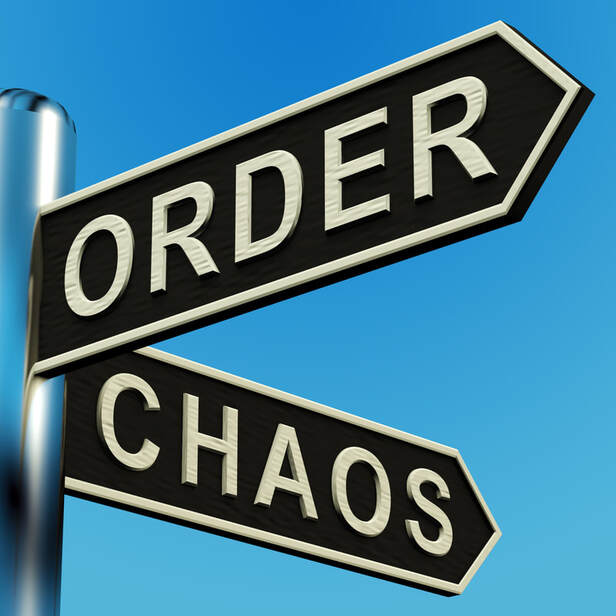


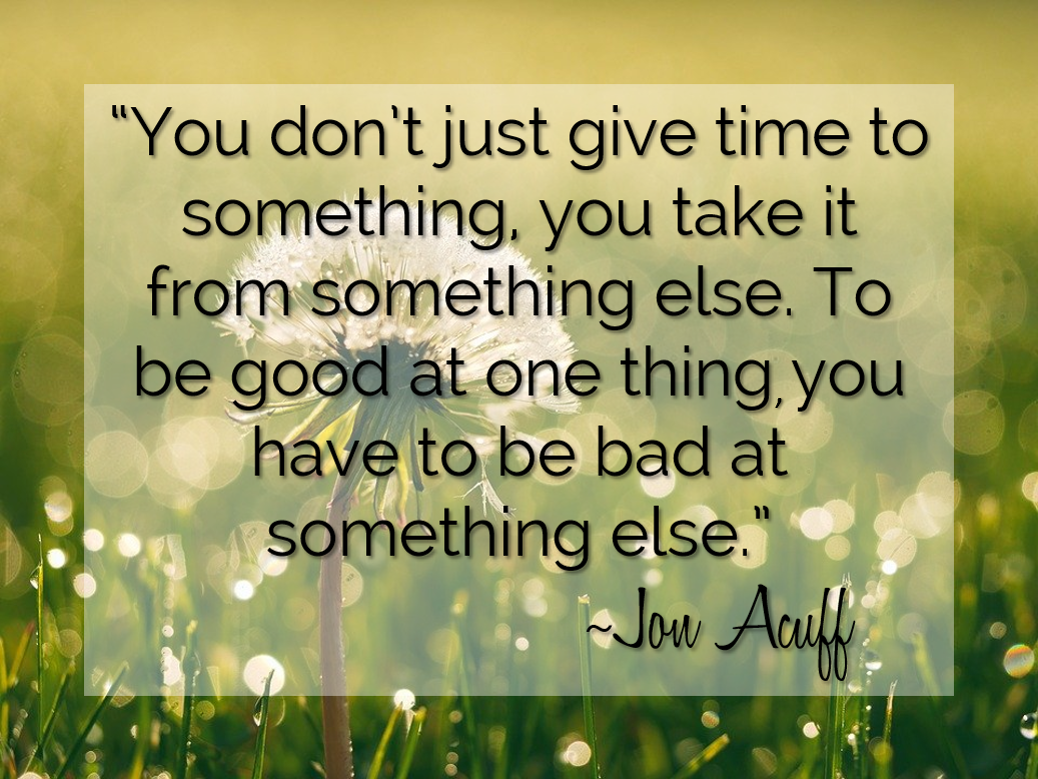


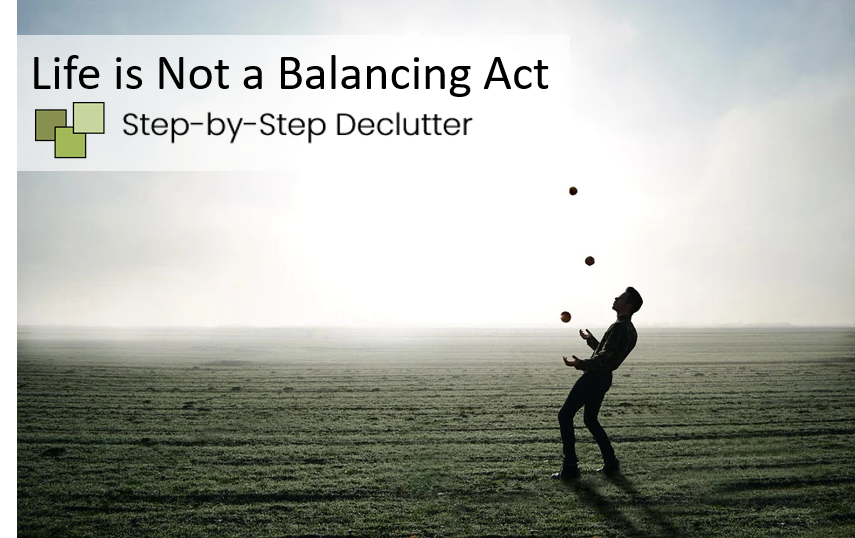

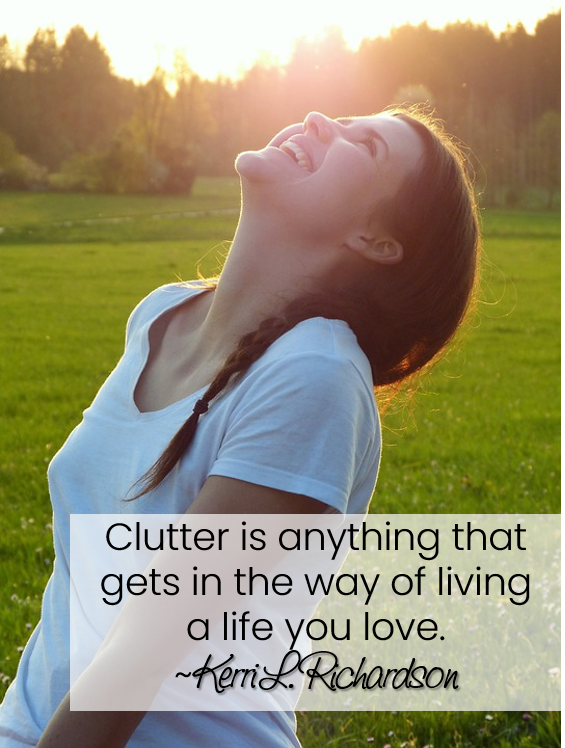
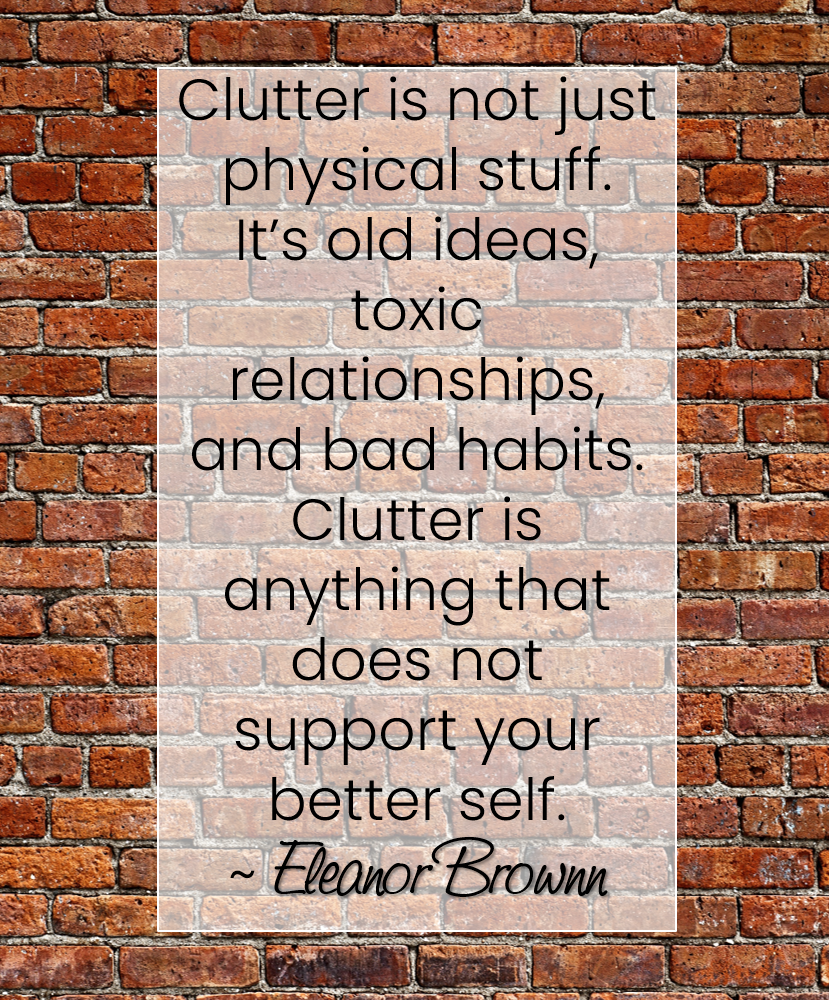




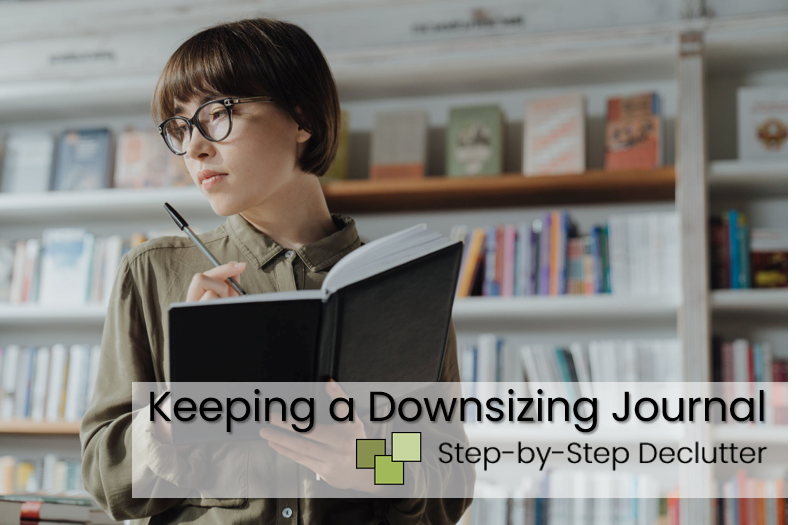



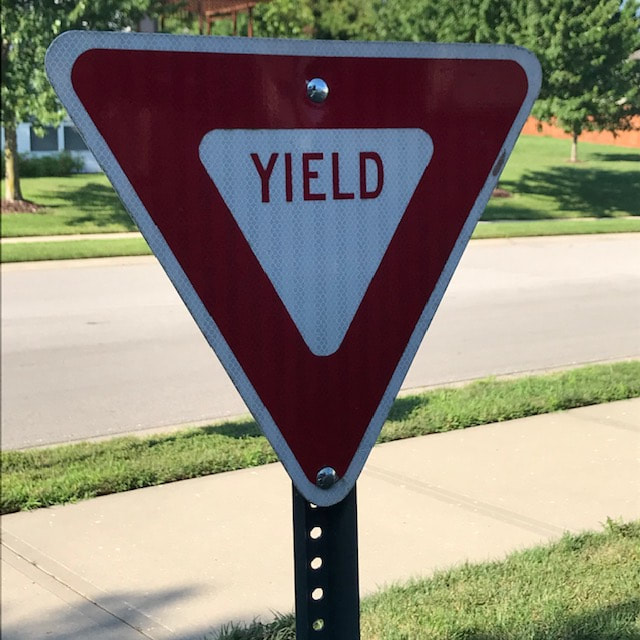


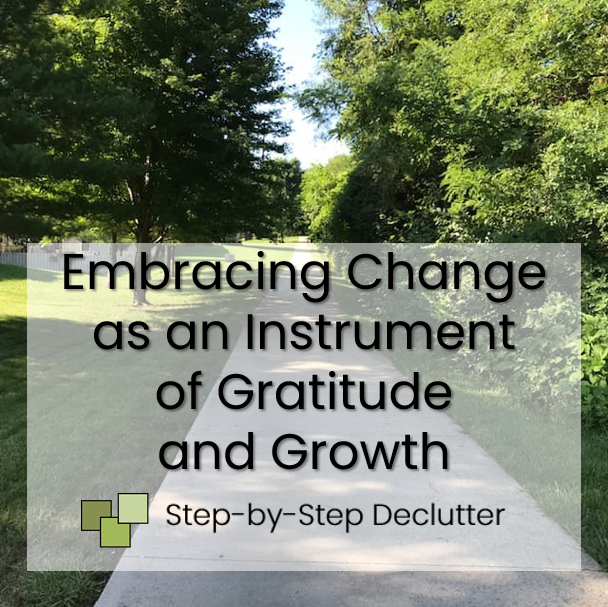



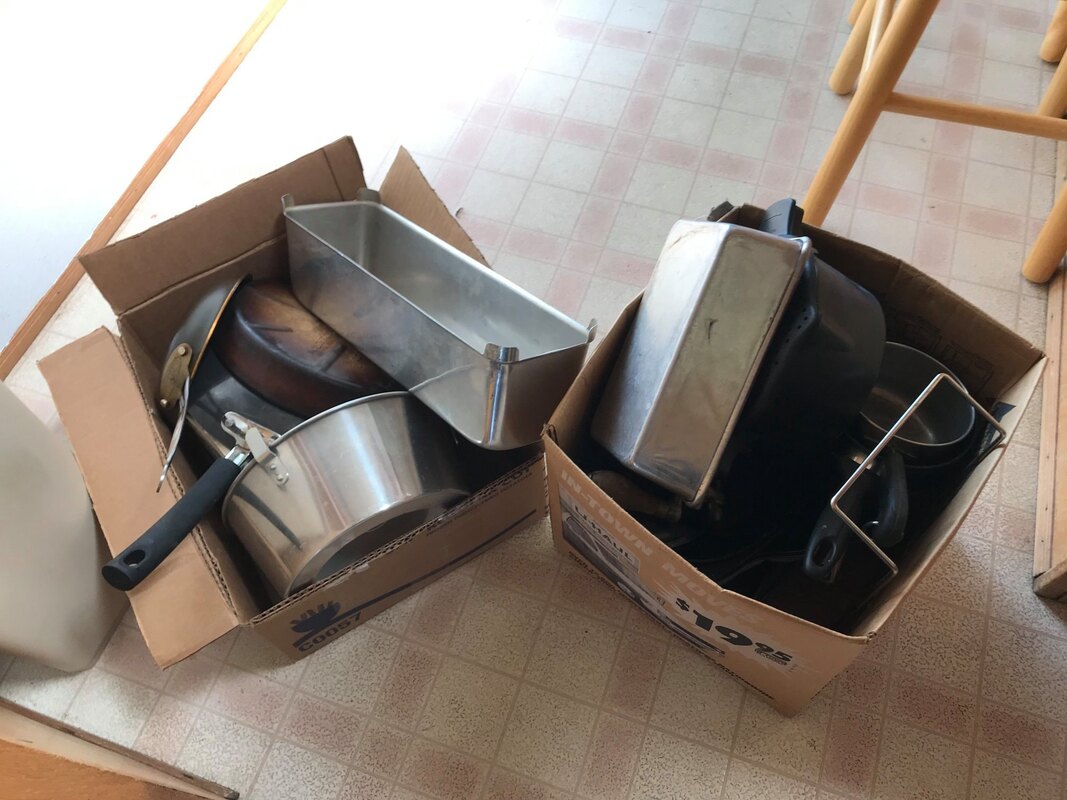
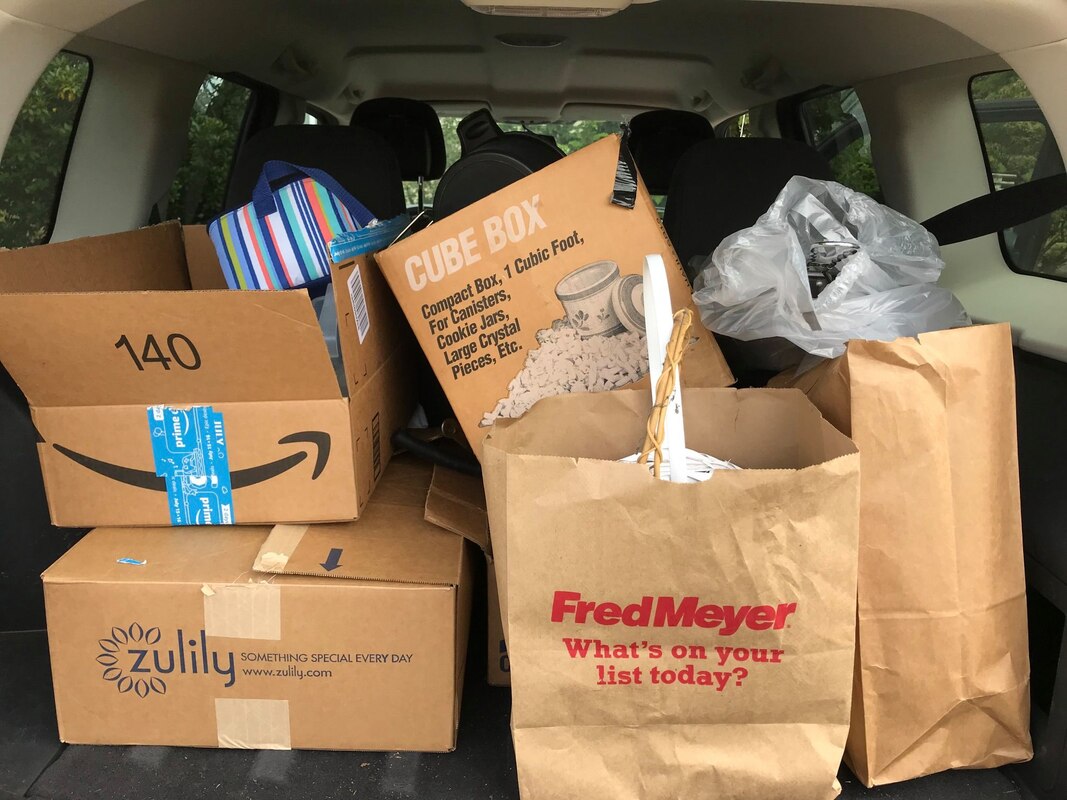
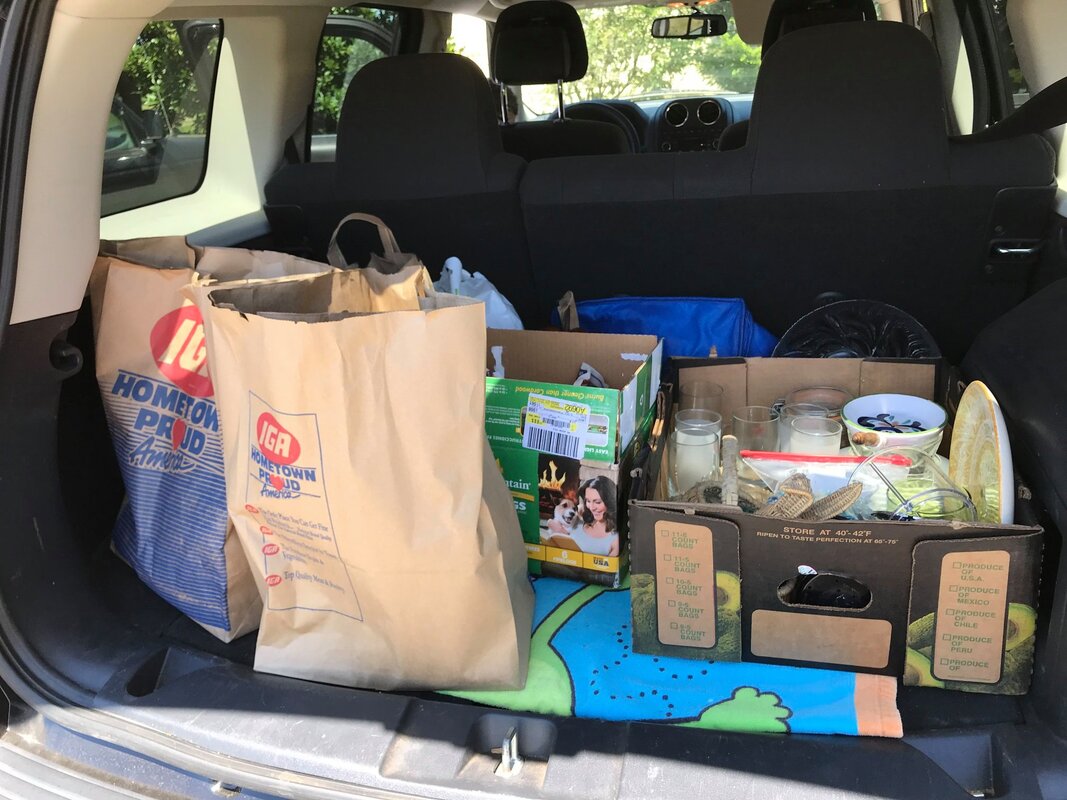
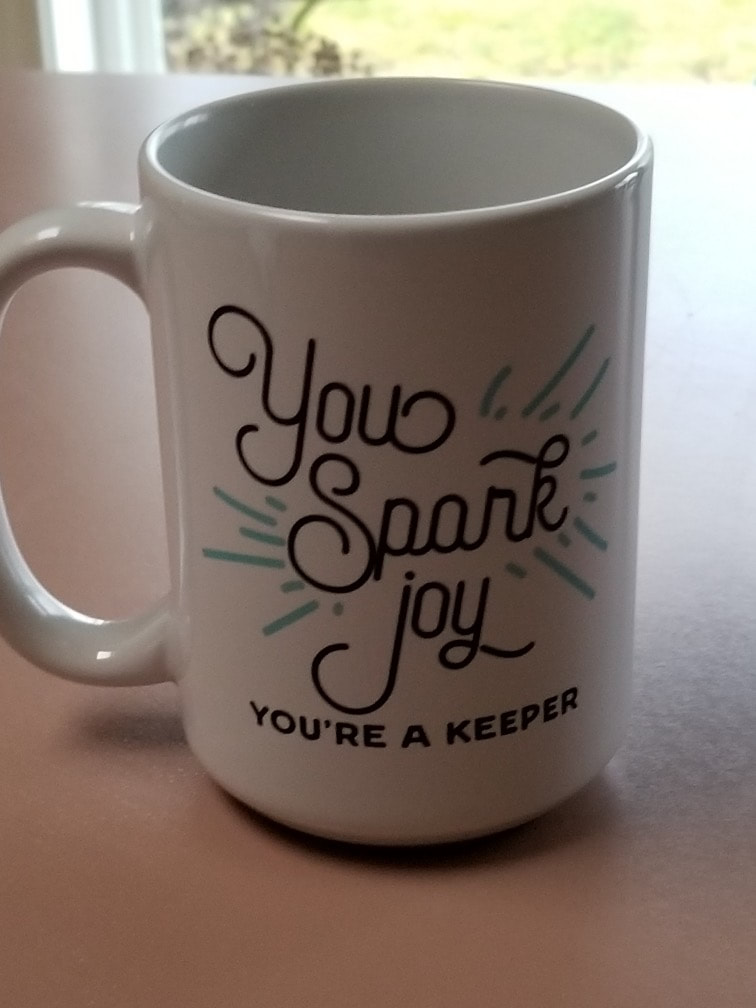
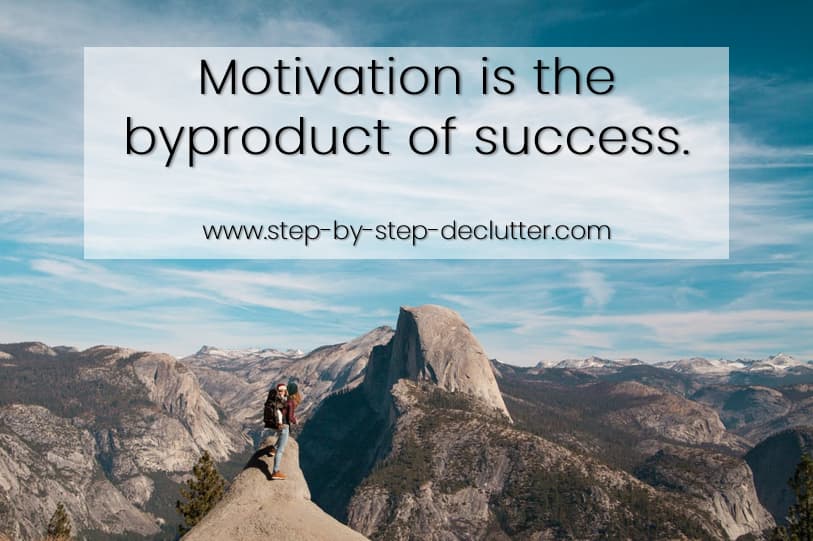

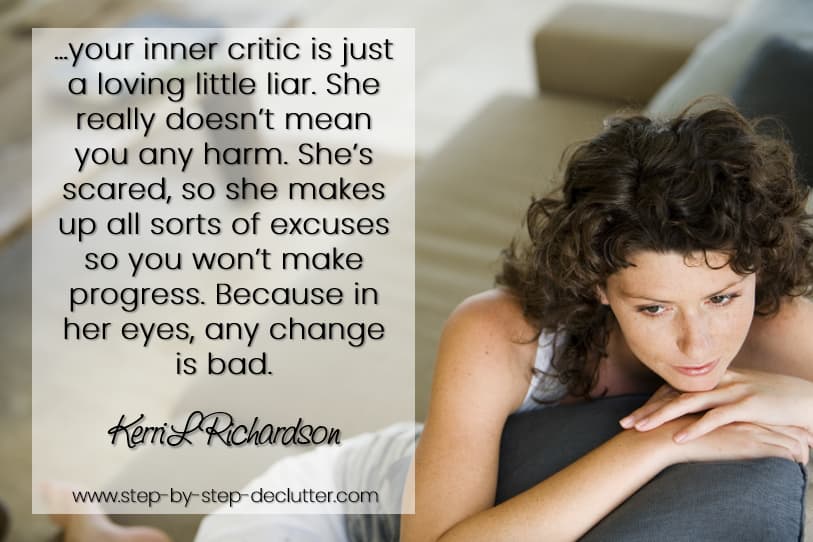
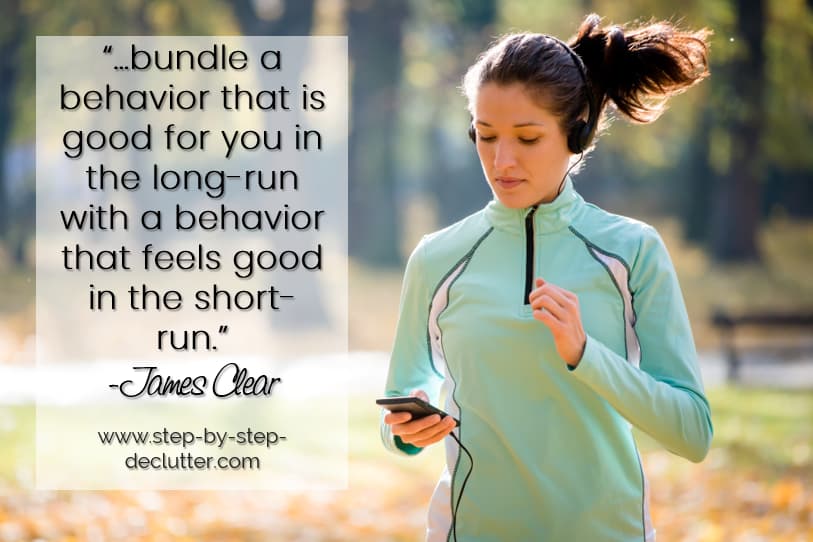

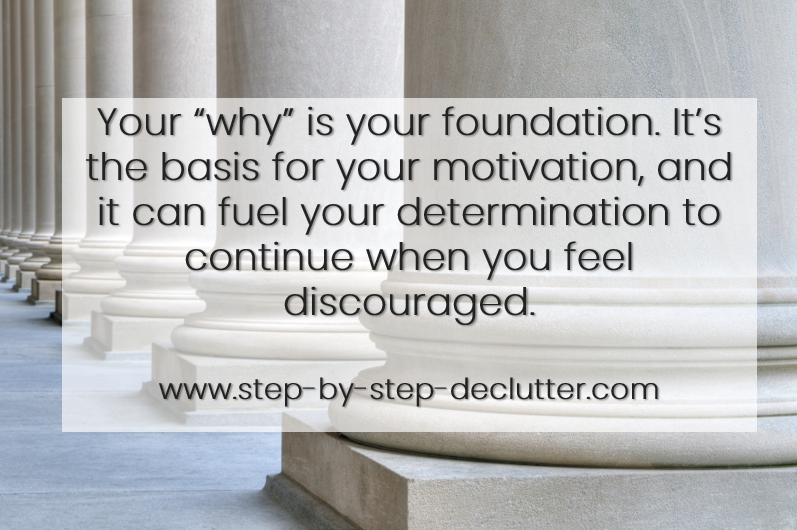
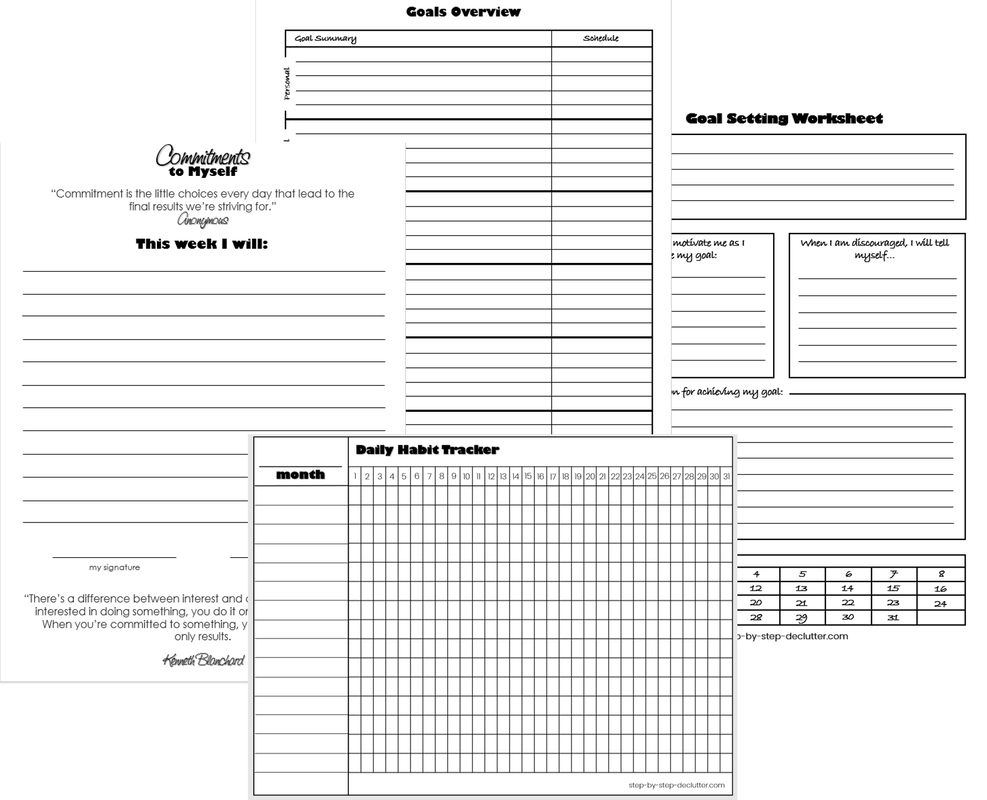


 RSS Feed
RSS Feed